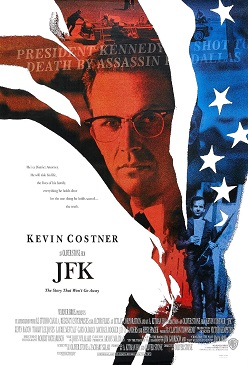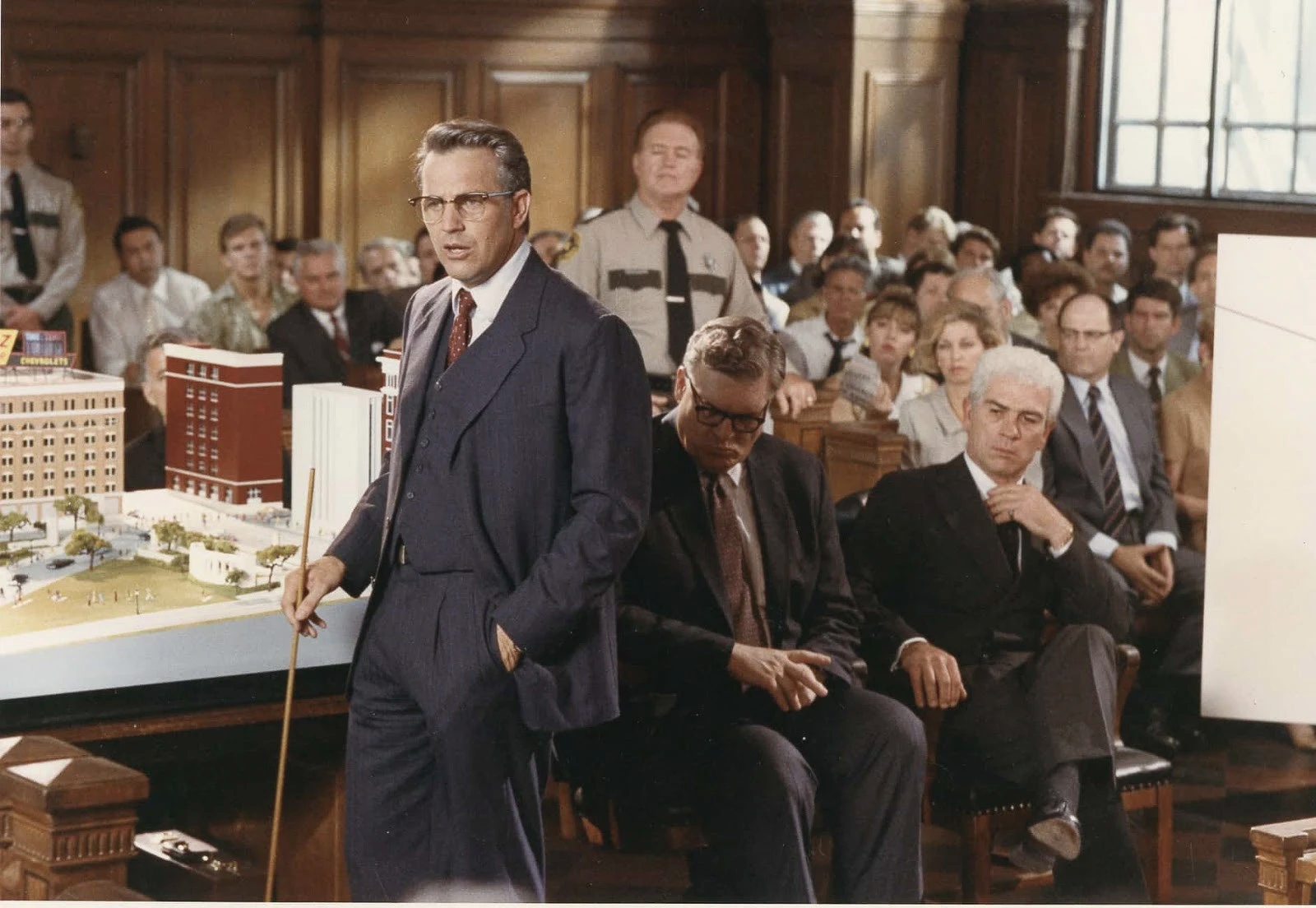
I was largely apathetic and carefree in grade school about the world’s happenings, American politics, and US history until I took my education more seriously, starting in the seventh grade. While I got the general gist of American history during eighth and ninth grades, I discovered well after graduating college that many inconvenient details were absent from mainstream textbooks. I long knew about the assassination of President John Fitzgerald Kennedy, with conspiracy theories abounding about his murder, expanded upon through director Oliver Stone’s “controversial” Academy Award-winning JFK, which many film critics consider his magnum opus.
The movie heavily utilizes footage from the 1960s, opening with President Dwight Eisenhower’s farewell speech regarding the military-industrial complex. Then it proceeds to JFK’s assassination proper in Dallas, Texas, on November 22, 1963, by Lee Harvey Oswald (who would himself be killed the same day by nightclub owner Jack Ruby), portrayed by Gary Oldman in Stone’s film during his original material. The music is decent, but the irritating overuse of snare drums, chiefly during the president’s murder, can be pretty annoying. After the first ten minutes, my initial impression of the film was also negative, given lines like, “Goodbye, you sorry bastard! Die!” and conversations like this:
The president has been shot.
Oh no!
They think it’s in the head.
Luckily, this doesn’t indicate the movie’s overall quality, as the second act is better, concluding with Jim Garrison’s (played by Kevin Costner) trial against Clay Shaw (Tommy Lee Jones), where excellent points and observations are made about the iffiness of the Kennedy assassination, only for Shaw to win. I can relate to many of the themes, like Garrison being a crappy husband and father and that “official” government reports shouldn’t be blindly trusted. One thing that irked me about the movie’s reception outside movie critics was that questioning the government was more “controversial” than the film’s racist and homophobic slurs (and sadly, the MPAA thinks saying “fuck” is worse than those, for some illogical reason). Then again, the Woke movement didn’t exist in 1991.

The acting was okay, aside from lines like those above and the overabundance of allegedly “intelligent” characters, mainly the Southern historical figures and politicians, sounding like dumb hillbillies (you can tell I’m from the South by my voice, but I have the dignity not to talk like that). Aside from the irritating snare drums, the music was mostly good, with the violin pieces being the strongest, particularly during the ending credits (before which comes an epilogue showing the fates of the various luminaries featured in the film). Many great quotes also abound, like “The bigger the lie, the more people will believe it.”
Overall, despite a lousy beginning, some bad writing (including unnecessary gratuitous swearing), and occasional veering off-topic (like Mardi Gras and gay parties), JFK has something for everyone regardless of how they feel about the Kennedy assassination and conspiracy theories, mostly deserving the Academy Awards it received. It’s easily a bucket-list film (but that is far from synonymous with “masterpiece”) and makes excellent sociopolitical commentary about questioning one’s government, even in the face of “official” facts (which often come from people with political agendas). Sadly, given the federal destruction of most documents related to the Kennedy assassination, who the hell knows if we’ll ever discover the genuine, objective, verifiable truth?
| The Good | The Bad |
|---|---|
| Some of the performances are good. Ditto the music. Trial at end is the film’s high point. Great sociopolitical commentary. | Bad first impression. Snare drums in music are irritating. Inconsistent quality of acting. Sometimes veers off-topic. |
| The Bottom Line | |
| A bucket-list film with something for everyone regardless about how they feel about the Kennedy assassination. | |

